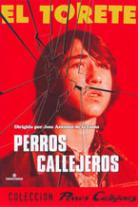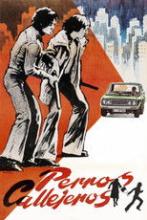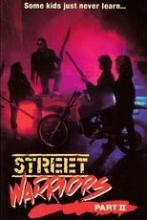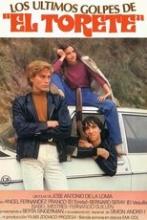
Perros Callejeros Trilogy
These films depict juvenile delinquency and crime in Barcelona's 1970s and 80s urban barrios, highlighting real-life delinquent youths and hardened police officers amid poverty, societal neglect, and corruption. Known for gritty realism and emotional intensity, they portray survival struggles, attempts to escape poverty, and clashes between youthful rebellion and conservative norms, reflecting societal fragmentation and inequalities. The expressive Catalan language, gritty cinematography, and soundtracks of Spanish and Catalan musicians enhance the tense atmosphere. The films showcase Catalan cinema's stylistic innovations, evolving from pre-1973 innocence to post-coup cynicism, affirming Catalan culture and exploring complex identities under an oppressive regime.
Street Warriors (1977)
23 December, 1977
Perros Callejeros is based on the juvenile delinquency of the 1970s and 80s in Spain. The story is set in Barrio de la Mina in Barcelona one of the most conflict neighbourhoods in Spain. The characters chosen were real juvenile delinquents all with criminal records, which the director used to give the film a realistic touch. This film is very powerful and dramatic, it shows how these kids were brought up to survive on the streets.
Street Warriors II (1979)
08 October, 1979
A veteran policeman named Fernando feels a lot of hatred against Ángel because the boy ran him over with a car leaving him lame. Now Fernando accuses the young crook of having participated in a robbery at a gas station in which a murder has occurred. Helped by his friends, Ángel rebuilds the facts that serve him as an alibi, but while he is in pre-trial detention in La Modelo prison (Barcelona) a terrible mutiny will take place.
The Latest Scams of El Torete (1980)
25 September, 1980
While the Torete rob banks, the Heifer, another delinquent who has not noticed it, enters the same place to rob him. After failing the coup, both decide to associate.



